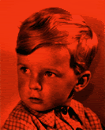Cognitive Dissonance
To keep your mind open, first be aware of how closed it may be.
From prisonplanet.com.Cognitive dissonance: writer James Atherton calls it "a psychological phenomenon which refers to the discomfort felt at a discrepancy between what you already know or believe, and new information or interpretation. It therefore occurs when there is a need to accommodate new ideas, and it may be necessary for it develop so that we become 'open' to them." It's that queasy feeling that rises often in your gut online and screams, "I DON'T BELIEVE THAT!"
It's what happens "if someone is called upon to learn something that contradicts what they already think and know - particularly if they are committed to that prior knowledge - they are likely to resist the new learning. Even Carl Rogers recognized this. Accommodation is more difficult than Assimilation, in Piaget's terms," writes Atherton.
"And - counter-intuitively, perhaps - if learning something has been difficult, uncomfortable, or even humiliating enough, people are less likely to concede that the content of what has been learned is useless, pointless or valueless. To do so would be to admit that one has been 'had,' or 'conned'."
Selective Exposure Prevents DissonanceFrom afirstlook.com.
Festinger [investigator of cognitive dissonance] claimed that people avoid information that is likely to increase dissonance. Not only do we tend to select reading material and television programs that are consistent with our existing beliefs, we usually choose to be with people who are like us. By taking care to "stick with our own kind," we can maintain the relative comfort of the status quo. Like-minded people buffer us from ideas that could cause discomfort. In that sense, the process of making friends is an example of selecting our own propaganda.
Postdecision Dissonance
According to Festinger, close-call decisions can generate huge amounts of internal tension after the decision has been made. Three conditions heighten postdecision dissonance: (1) the more important the issue, (2) the longer an individual delays in choosing between two equally attractive options, and (3) the greater the difficulty involved in reversing the decision once it's been made, then the more the person will agonize over whether he or she has made the right choice. Sometimes referred to as "morning-after" doubts, the misgivings or second thoughts that plague us after a tough choice motivate us to seek reassuring information and social support for our decision.


0 Comments:
Post a Comment
<< Home